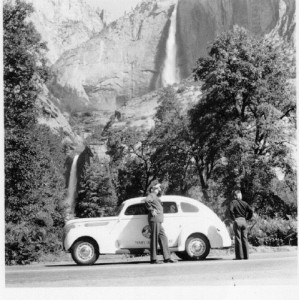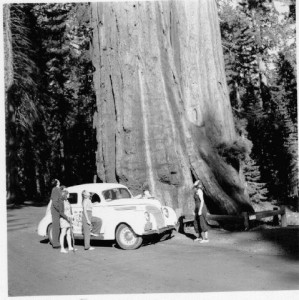Again a nod to Today in Literature: on this day, Thomas Wolfe passed away from tuberculosis that had been lurking in his body since he was a boy. He was just shy of 38 years old.
The event that occasioned it was an exhausting grand tour of the national parks of the West.


Wolfe was a writer for hire on the National Parks project. But no doubt the project appealed to the man who once wrote of his thinly-veiled autobiographical character, George Webber:
His life had always seemed to shift between the poles of anchored loneliness and foot-loose voyagings–between wandering forever, and then the earth again–and now the old and restless urgings of “Where shall we go? And what shall we do?” again became insistent, would not down, and demanded of him a new answer.
In his introduction to Look Homeward, Angel, Maxwell Perkins quoted a passage from War and Peace that Wolfe loved: “Prince Andrei looked up at the stars and sighed; everything was so different from what he thought it was going to be.” This was a theme for the young Thomas Wolfe, who came to earth trailing clouds of glory, who retained them in his mind but was batted back and forth between his mother and father, a perpetual vagabond. The line about Prince Andrei would seem a fitting epitaph for Wolfe were it not for the success he achieved in his books. At the end of Look Homeward, Angel, Eugene Gant meets his brother Ben again, temporarily resurrected, leaning against the porch of his father’s shop on the Square and smoking as usual. What happens next is that the marble angels outside W.O.’s shop come alive. What Wolfe achieved in his best writing is no less of a feat. Wolfe was the greatest revelation for me when I was researching A Journey Through Literary America. I had thought it would be a struggle to get through such a long book but it was a pure delight.